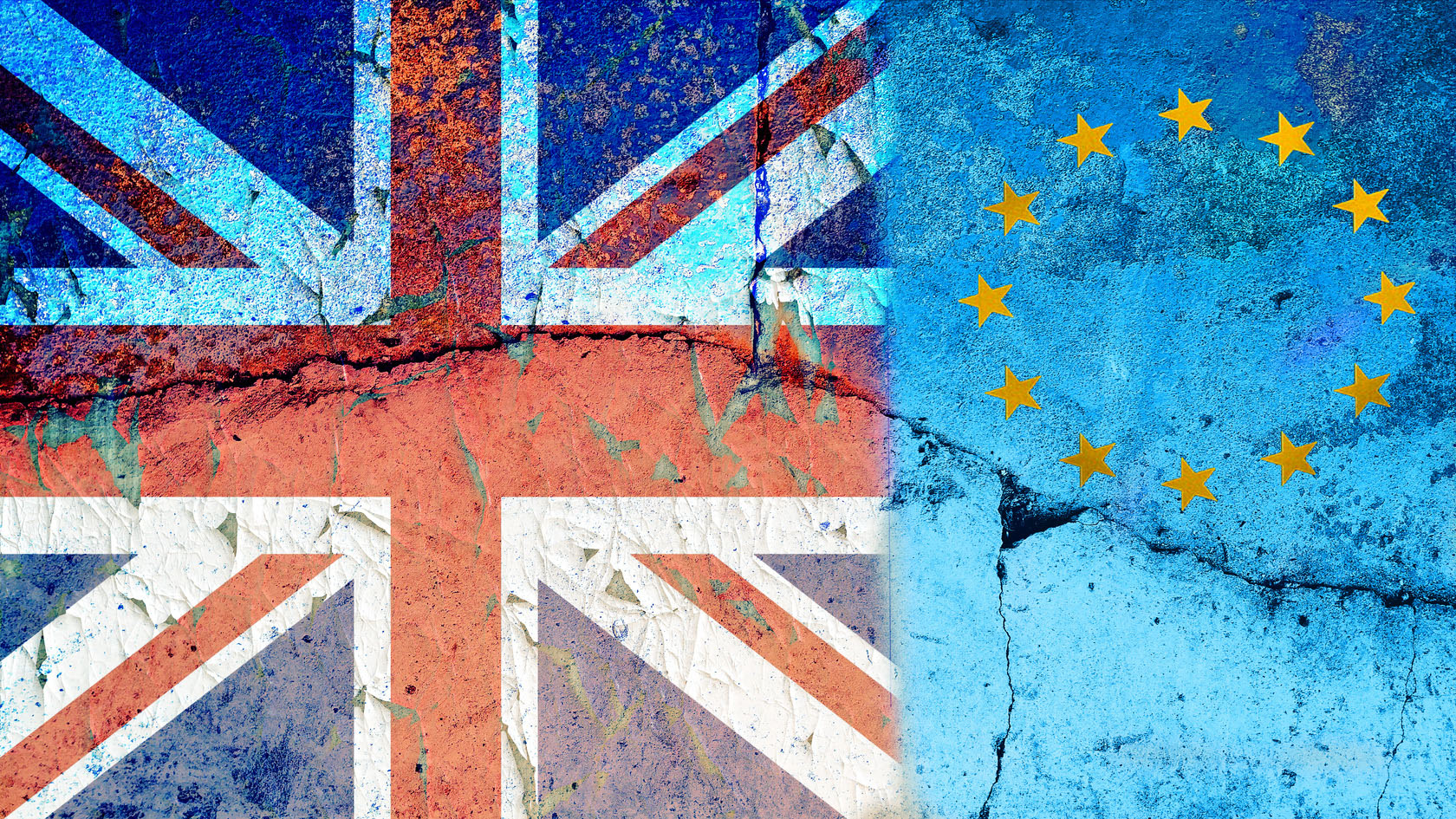
The EU has good reason to hope that Brexit goes badly, writes Noragric’s Paul David Beaumont. That would continue to deter Eurosceptic parties on the continent from hardening their stance. But at the same time, an unambiguously disastrous Brexit would risk depoliticising EU membership and reduce the incentive to address its many flaws.
If we get the politics we deserve, Britain deserves a Prime Minister standing for election on the promise to “get Brexit done”, a slogan that both embodies and celebrates unthinking decisiveness. Not only does the slogan require the electorate to suspend their critical faculties, it does so proudly. Like so much Brexit discourse, it knowingly rests upon what is at best a half-truth. Indeed, even if Johnson gets a majority and passes his withdrawal bill, Britain will only then begin negotiating the UK’s future relationship with the EU. These negotiations will likely prove at least as long, arduous and acrimonious as the Withdrawal Agreement. In short, Brexit would not be “done”. Far from it.
In a more profound sense, Brexit will never be “done”. These last three years of omnishambles have had the side-effect of producing a genuinely collective memory, not only for the UK, but for Europe too. In this respect, Brexit is unusual because it has generated the sort of continuous international attention usually reserved for major wars. While Brits must endure it all first hand, the drumbeat of political calamity emanating from the UK frequently makes it into continental news bulletins too. Other EU members have been watching the Brexit soap opera unfold with a mixture of concern, irritation and amusement. In short, Britain’s Brexit experience has become that rarest of things: a narrative resource for politicians across Europe, one that lessons will be drawn from indefinitely. The question is, what lessons?
Theorising the Brexit effect
In my recent article Brexit and EU Legitimation: Martyr for the EU Cause? I explore how Brexit has and will affect the EU’s ability to legitimate its existence. I argue that the EU requires a new narrative of legitimation because the old narrative, which was based upon avoiding a repeat of Europe’s bloody past, is fading, while as Brexit showed, conventional cost-benefit analysis and expert warnings may not cut through to citizens. Assuming that in the long term each EU member requires a majority of its citizens to support membership, how can the EU legitimate itself in the 21st century?
Drawing upon emerging trends across Europe, my article argues that Britain, via Brexit, appears to be providing a new narrative of legitimation for the EU. In the absence of rational deliberation, I suggest that periodic martyrdom can serve as an unfortunate alternative mechanism for EU legitimation. In short, budding Eurosceptics may require a periodic public demonstration of the folly of exiting to appreciate the gains from membership. While the costs and benefits of EU membership might be diffuse while the given state is a member, they become crystallised and concrete upon its leaving. The learning forced upon Britain via Brexit would therefore become a public lesson for all.
The function of this martyrdom for the EU lies not in the utility of the sacrifice itself (it will likely make the remaining members economically worse off), but in its narrative potential to become a “usable past” that “can be harnessed for some purpose in the present”. Indeed, I suggest that Brexit has the potential to become a morality tale that embodies the dangers of nationalist hubris and putting faith in Eurosceptic fantasies. Certainly the preliminary evidence suggests that the effect of Brexit has been to strengthen support for the EU, or at least blunten hard Euroscepticism across the continent.
From model to martyr
It did not always seem so. In the aftermath of the Brexit vote, the reaction across the continent looked ominous for the EU. From Marine Le Pen calling for Frexit to Geert Wilders demanding Nexit, Eurosceptics across the continent rejoiced at the referendum result. Indeed, commentators began pondering whether Brexit could become a model for other members to follow and whether it would precipitate an existential crisis for the EU, or even the West.
Yet as the Brexit negotiations rumbled on, a remarkable turnaround in Eurosceptic trends emerged. Even those observing from a distance could see that the Eurosceptic promises of “sunlit uplands” would not be realised. The UK’s attempts to leverage its economic heft in order to Brexit with all the benefits of the EU without the costs or rules, have been rendered fantasy (cakeism in British parlance). The humiliation of Britain during the negotiations turned it into a laughing stock. Concurrently, the process of trying and failing to get such a deal has already turned Brexit into a cautionary tale. For instance, in an open letter to his country’s citizens, the Dutch Prime Minister warned:
If anyone […] thinks Nexit is a good idea just look at England and see the enormous damage it does.
If these snapshots appear anecdotal, polling data and the changing policy positions of Eurosceptic parties also indicate that change is afoot. Once hard Eurosceptic parties now preach remain and reform. For instance, Italy’s Five Star Movement no longer campaigns to leave the Eurozone and Marine Le Pen’s National Rally has gone silent on Frexit. Meanwhile, the Eurobarometer polls suggest that the decline in support of the EU has reversed. The 2018 poll shows support for the EU at its highest since 1983. On average, 60% of citizens believe that EU membership is a good thing. While the headline of an EU Parliament news article reporting on the poll read “Public opinion survey finds record support for EU, despite Brexit backdrop”(my emphasis), it seems more plausible that this is the result of Brexit.
In short, it seems that Brexit has given Europhiles a symbolic resource more powerful than any amount of economic analysis of the benefits of EU membership. From a Europhile perspective, this may have happened in the nick of time. The EU needs a new legitimation narrative. It need not be detailed; it just needs to be simple, powerful and accurate enough to be plausible: Do you really want your country to ‘do a Brexit’? could well prove apt.
Entwined EU and UK narratives
The Brexit narrative is, however, far from settled and the type of exit may well prove crucial. Indeed, Paul Taggart and Aleks Szczerbiak are probably right that unless the outcome is unambiguous, its meaning may well become muddied as it is “filtered and interpreted through the different narratives of Euroenthusiasts and Eurosceptics”.
Still, what would need to happen next to turn Britain into a usable martyr for the EU? I suggested that a no-deal outcome followed by the dissolution of the UK might do it. While I stand by this claim, I have since begun to consider it more useful to think about Brexit outcomes and their effects on the EU in terms of a continuum between model and martyr (Figure 1 – which is a new idea and thus a work in progress; I welcome any and all feedback below the line), where at each extreme exists perfect, European-wide agreement that Britain either flourished or suffered because of Brexit, while in the middle exists varying degrees of disagreement.
So far, Brexit has appeared as a series of very public debacles, which has made Britain seem the unwitting martyr: its very public shambling has so far helped legitimate the EU. However, the risk of the UK becoming a model has not entirely receded. The dial may shift backwards and forwards with time. Indeed, as any Briton who lives abroad can confirm, Britain has become defined by Brexit in the international imagination. Rightly or wrongly, Britain’s fortunes seem likely to become a bellwether for soft Eurosceptics considering turning hard, and Britain’s fortunes have thus become inextricably linked to the EU’s. The better Brexit appears to go for the UK, the more of an existential threat Brexit becomes for the EU. The worse life after Brexit appears, the more likely that Britain will become a martyr, albeit an unwitting one, for the EU cause.
UK: Sunlit uplands <—> Disaster
Mechanism: Model to follow <—> Unwitting martyr
Effect on EU: Existential threat <—> Legitimates EU
The grim implication is that the EU has powerful incentives to wish its awkward friend ill. However, it is not quite as simple as that. To be sure, if it lets the UK have its cake and eat it then the EU will quickly fall apart, as the rest of the bloc seeks the same deal. Yet if it is seen to punish Britain then the EU would risk appearing like a prison (a Eurosceptic trope). The best option for the purposes of EU legitimation – and the one that the EU has followed so far – is to stick stolidly to its own rules: offer the UK no special privileges, nor any special punishments. In short, the UK will be able to have its cake, but not to eat it too.
The optimal outcome for those who would prefer to see the EU reformed rather than disintegrate would be for Brexit to appear to go badly – but not so unambiguously that the Brexit martyr effect depoliticises EU membership altogether. This way, Brexit would become a resource for dampening the more fantastical claims of hard Eurosceptics on the continent, but not so badly that it makes leaving unthinkable and therefore undebatable. After all, the EU does suffer from a widely documented “democratic deficit”, and if Brexit turns out to be an unambiguous disaster it would reduce the incentive for the EU to address its many, many institutional flaws.
This post represents the views of the author and not necessarily those of Noragric or NMBU.
Paul David Beaumont is currently finalising his PhD dissertation ‘The Grammar of International Status Competition’ at the Department of International Environmental and Development Studies at the Norwegian University of Life Sciences. Twitter: @BeaumontPaul.



